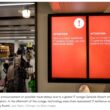Martin ready to require VoIP 911
Federal Communications Commission Chairman Kevin Martin Tuesday said he plans to propose that voice-over-IP (VoIP) providers be required to provide emergency-calling services through the traditional 911 systems.
Martin made the statement during a question-and-answer period following his budget presentation to a U.S. House appropriations subcommittee. After the hearing, Martin told reporters he would like to address the issue during the month of May.
“I said I wanted to make sure that we were able to try to get something out by May,” Martin said. “Obviously, that’s up to the other commissioners. But in order for that to be an option, I have got to get it to them prior to that, so my goal is to get it to them so that they could adopt it in a May timeframe.”
The FCC has an open meeting scheduled for May 19. FCC rules require that any item Martin places on an agenda be circulated to other commissioners at least three weeks before a meeting. Thus, Martin would have to circulate his proposal to commissioners by tomorrow to be considered during the May 19 meeting. If the matter is not considered during the May 19 meeting, commissioners can conduct votes electronically on items at any time.
Emergency-calling services from VoIP providers have been scrutinized during the past two months, since a Houston girl was unable to call 911 from her family’s Vonage phone after her mother and father were shot. Texas Attorney General Greg Abbott has filed suit against Vonage for not clearly advertising that the company’s IP-based phone offering does not automatically include 911 service. Vonage customers can opt into a 911 service that directs emergency calls to a PSAP’s administrative offices.
Vonage spokeswoman Brooke Schultz said Vonage can provide E911 services to customers that keep their phone in one location or manually update location information as they move the phone. However, Vonage and other VoIP providers can only offer this service in areas where they have access to the selective routers that direct 911 calls to the appropriate public-safety answering point (PSAP). However, the incumbent phone company serving the geographical area controls most selective routers.
“The bottom line is that the [FCC] needs to extend whatever obligations it places on VoIP providers to the underlying network providers, as well,” Schulz said.
Schulz said Vonage–by far the largest “virtual” VoIP provider, with more than 500,000 customers–has reached agreements with Verizon Communications and Qwest Communications to gain access to those carriers’ selective routers. Schulz indicated Vonage is close to a similar agreement with SBC Communications. Negotiations with BellSouth have not progressed as quickly, she said.

















